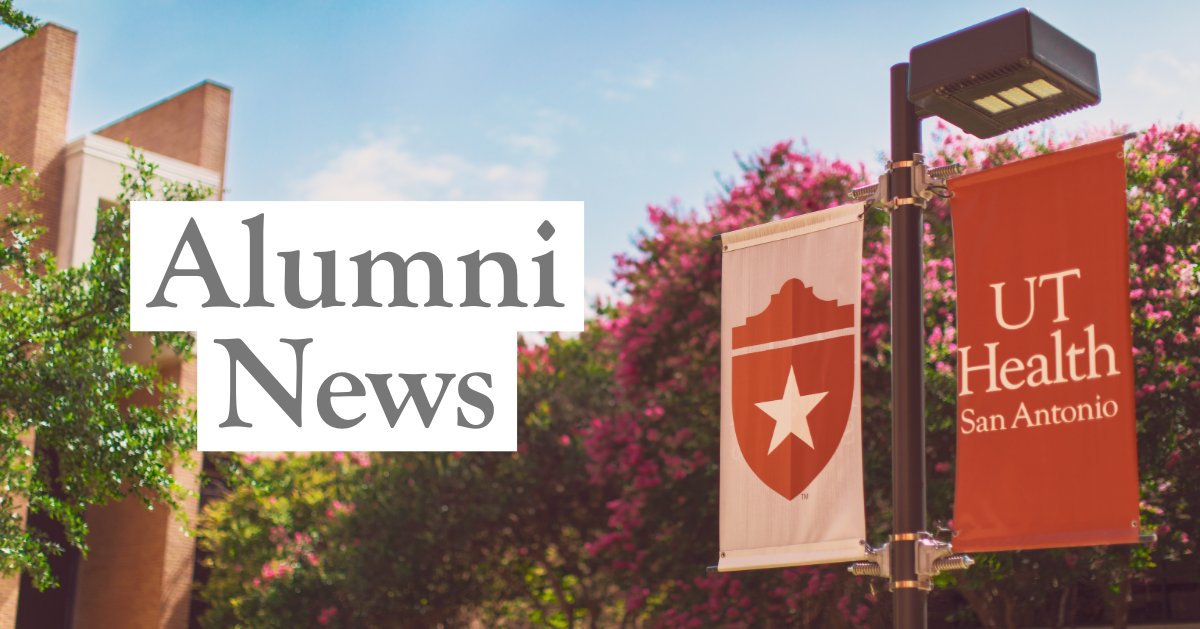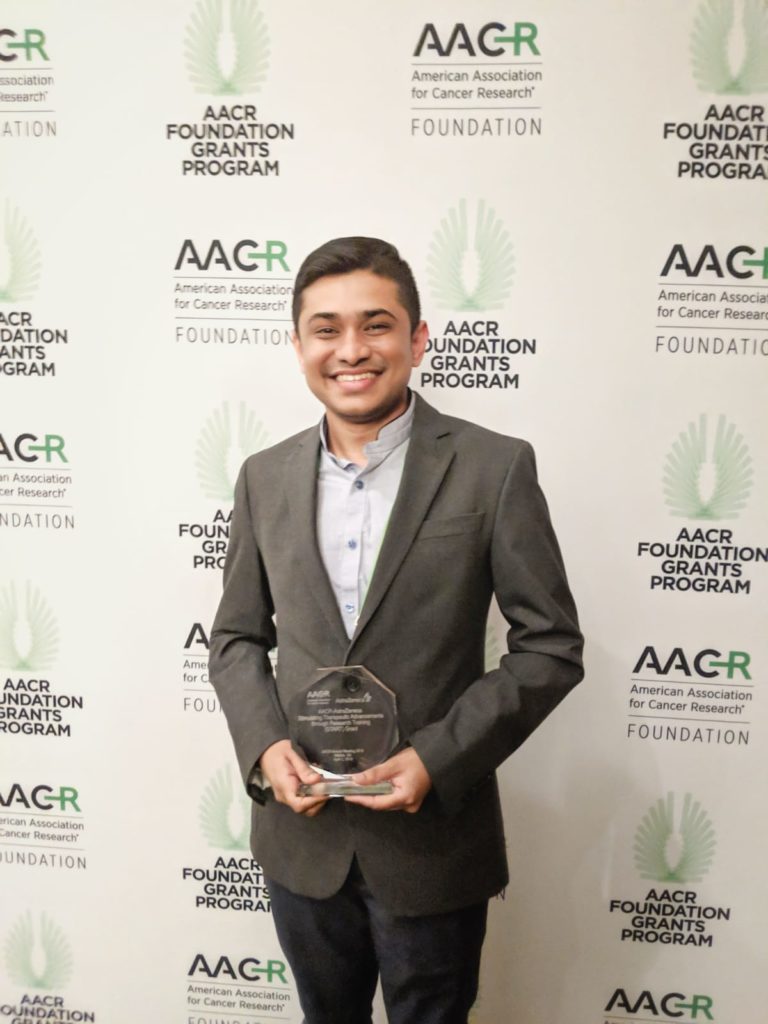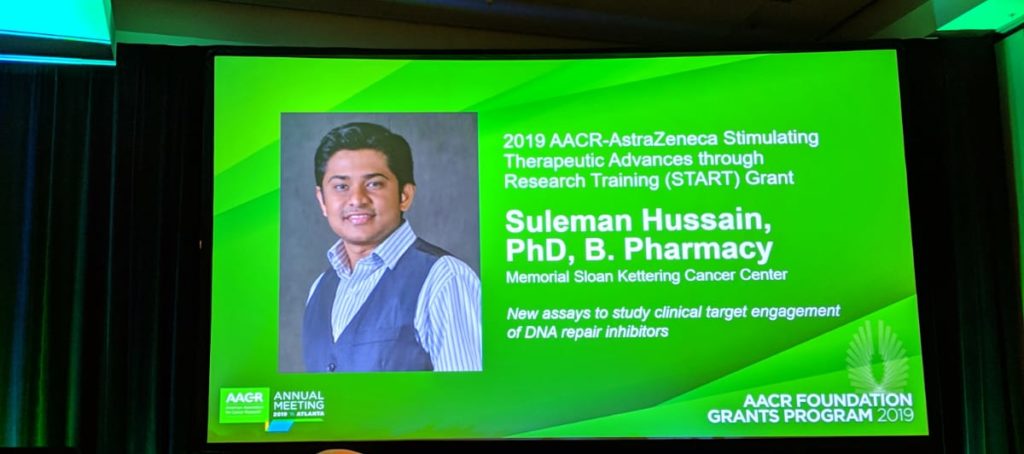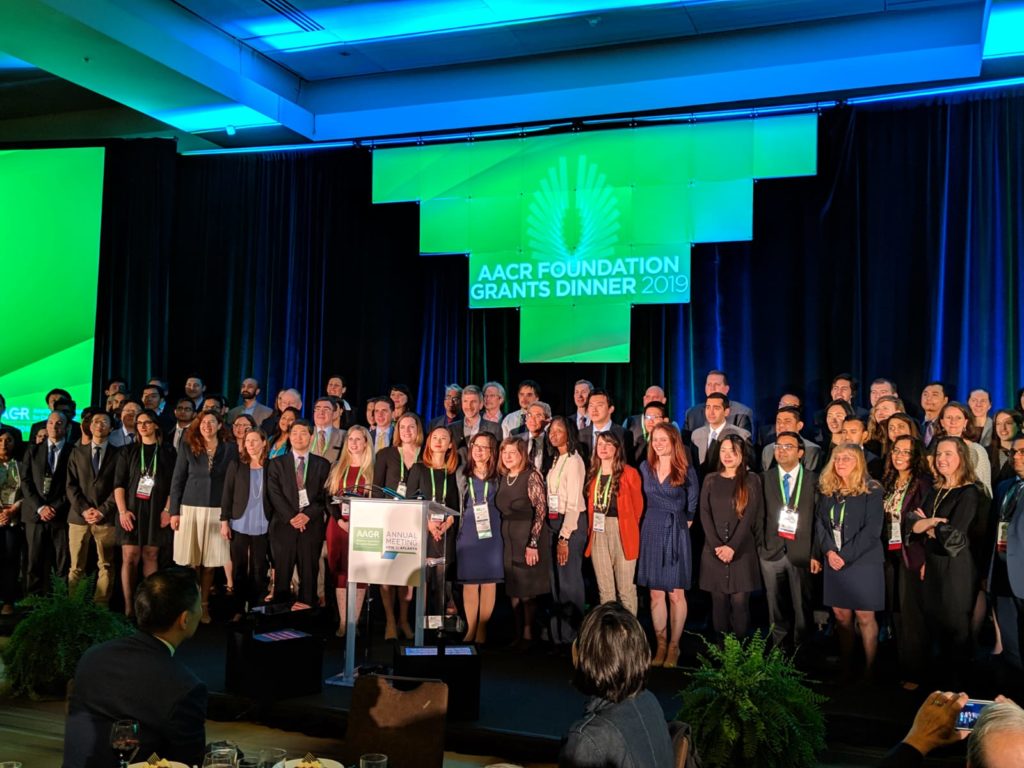Alumnus Dr. Suleman Hussain Receives AACR-AstraZeneca Stimulating Therapeutic Advances through Research Training Grant
1) What have you been up to since graduation?
I am a research fellow in the Dept. of Radiation Oncology at Memorial Sloan Kettering Cancer Center, New York.
Prior to this, I was a graduate student at UT Health San Antonio, working with Dr. Addanki P. Kumar on understanding the mechanisms of radiation resistance and identifying novel radio-sensitizers to improve prostate cancer treatment.
I am grateful for the mentorship I received from Dr. Kumar, which has helped shape my career and taught me how to look at the big picture and ask the important scientific questions.
2) Tell me about your current position, what do you do?
Deficiencies in certain DNA double strand break repair (DSBR) pathways can make cancers susceptible to other pathway inhibitors. For example, PARP inhibitors have proven to be successful in treating homologous recombination deficient (HRD) cancers. Currently used assays are unable to fully capture the pathway choices which the cell makes to repair damaged DNA. I am using the CRISPR-Cas9 system and next generation sequencing platforms, to develop an assay which can simultaneously measure usage of major DSBR pathways, in any live cell. A robust assay to study DSBR pathways will help basic scientists answer a plethora of biological questions related to DNA repair. Clinically, the assay can be used to test target engagement in clinical trials of DNA repair inhibitors and in personalizing care of cancer patients by choosing the right treatment for cancers deficient in different DSBR pathways.
3) Tell me about your grant. Why is it important for you?
The AACR-AstraZeneca Stimulating Therapeutic Advances through Research Training (START) fellowship is a new 3 year fellowship which allows fellows to pursue one year of their own research at AstraZeneca. This gives me a unique opportunity to use resources at both AstraZeneca and Memorial Sloan Kettering Cancer Center to advance my research. I am also excited about learning how research in the industry setting works, and importantly how my research can be translated from the bench to bedside.
4) What are some important things you want to tell the public about your research?
We are working hard to understand what makes a cancer cell unique. Thus, targeting that uniqueness will reduce harm to normal cells and decrease treatment related toxicity, which can help improve the current treatment paradigm.
5) What’s next for you and your project?
I might move to Cambridge, UK for the year at AstraZeneca. I love traveling and experiencing new cultures. This will give me the opportunity to explore Europe and will also expose me to some exciting European science.
Aparna Gorthi, Ph.D. who graduated from our program also received this AACR-AstraZeneca START award last year. She is the first UT Health Grad School alumnus to receive such an award.





